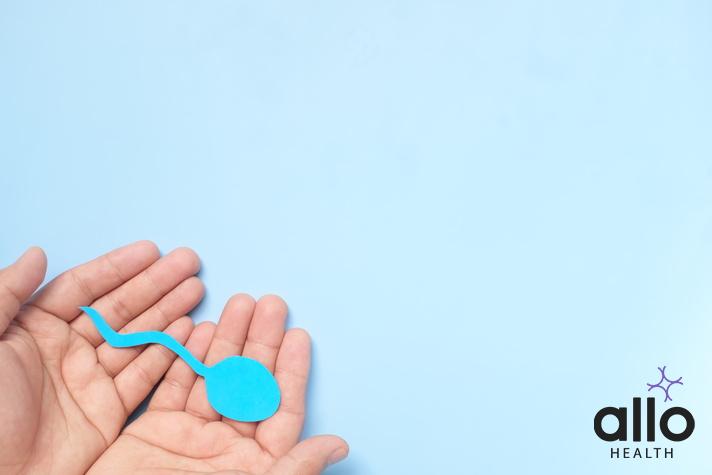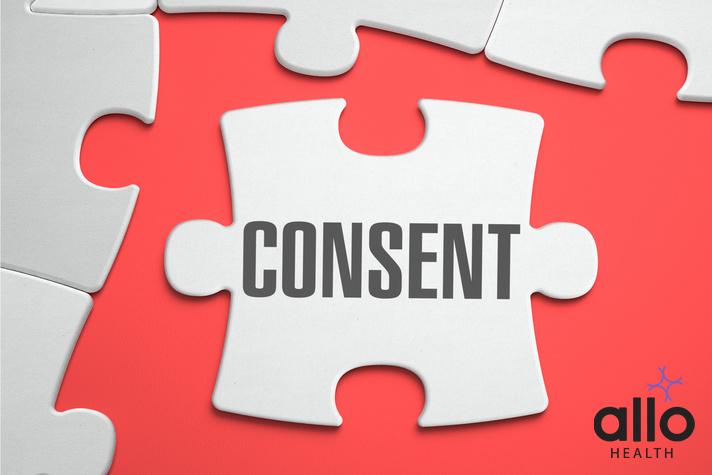Understanding Gen Z’s Sexual Health Trends

Allo Health is dedicated to personalized well-being, offering support and trusted information tailored to individual health goals. The platform emphasizes human-generated content, led by a distinguished medical team of experts, including physicians and sexual health specialists. Their commitment to credibility involves rigorous fact-checking, authoritative research, and continuous updates to ensure accurate, up-to-date information. Allo Health's unique approach goes beyond conventional platforms, providing expert-led insights and a continuous commitment to excellence, with user feedback playing a crucial role in shaping the platform's authoritative voice.

Dr Sandip completed his training in Psychiatry and sexual medicine in the UK. A post-graduate in Psychiatry from KMC Manipal, he worked in the UK for over 8 years following a one-year research post at NIMHANS, Bangalore. With an interest in the fields of sexual health and functioning, he has authored articles in books and peer-reviewed journals. A recipient of the student of the year award by BSART in 2010, he is currently a consultant psychiatrist and sexual and relationship therapist with a belief in a holistic and psychotherapeutic approach to treating psychological distress.
Why This Was Upated?
Our experts continually monitor the health and wellness space, and we update our articles when new information became available.
Updated on 15 July, 2024
- Article was updated as part of our commitment to diversity, equity, and inclusion.
"The following blog article provides general information and insights on various topics. However, it is important to note that the information presented is not intended as professional advice in any specific field or area. The content of this blog is for general educational and informational purposes only.
Book consultation
The content should not be interpreted as endorsement, recommendation, or guarantee of any product, service, or information mentioned. Readers are solely responsible for the decisions and actions they take based on the information provided in this blog. It is essential to exercise individual judgment, critical thinking, and personal responsibility when applying or implementing any information or suggestions discussed in the blog."
Generation Z, those born roughly between 1997 and 2012, has grown up in a world vastly different from that of previous generations. Shaped by the digital age, social media, and a heightened sense of social awareness, this cohort demonstrates unique trends in sexual behaviour, preferences, and health practices that distinguish them from Millennials and Gen X.
Digital Influence and Education
Gen Z has unparalleled access to information due to the internet and social media. This digital landscape has significantly influenced their sexual health knowledge and practices. With more than 71% of the world’s youth aged 15-24 using the internet (ITU, 2020), many children, adolescents, and young people are turning to digital sources for information on health, sex, and relationships. The availability of accurate information online has empowered them to make well-informed decisions about their sexual health.
Attitudes Towards Sexuality
One of the most significant trends among Gen Z is a broader acceptance of diverse sexual orientations and gender identities. Researchers surveyed over 6,600 individuals aged 13 to over 65, with additional focus on Gen Z adults and teens, between August 21 and September 15, 2023. The report revealed that around 16% of Millennials and 7% of Baby Boomers identify as LGBTQ. Among Gen Z adults aged 18–25, 72% identified as straight, 15% as bisexual, 5% as gay or lesbian, and 8% as “something else.” Additionally, approximately 20% of Americans belong to Gen Z, according to PRRI.
Even when it comes to India, the 2011 census acknowledged only a small portion of this population under the ‘other category,’ estimates based on the Kinsey scale suggest a significant presence of around 135 million LGBTQ+ individuals in India, representing approximately 10 percent of its 1.4 billion population.

While Generation Z’s views align with those of Millennials in many respects, Gen Zers are distinct from Millennials and older generations in at least two key ways, both reflecting the cultural context in which they are growing up. Gen Zers are more likely than Millennials to know someone who prefers gender-neutral pronouns: 35% say this is true, compared to a quarter of Millennials. This percentage decreases with each older generation: 16% of Gen Xers, 12% of Boomers, and just 7% of Silents.
Gen Z is also the most likely to believe that forms or online profiles should offer options beyond “man” or “woman” for gender. About 59% of Gen Zers hold this view, compared to half of Millennials and four-in-ten or fewer Gen Xers, Boomers, and Silents.
These findings suggest that the differences are more about exposure than viewpoint, as similar shares of Gen Zers and Millennials believe society should be more accepting of people who don’t identify as either a man or a woman. This openness towards diverse sexual identities is reflected in their inclusive attitudes and behaviours, with many young people advocating for LGBTQ+ rights and visibility.
Sexual Behaviour
Contrary to stereotypes that paint them as hyper-sexualized, research suggests that Gen Z may actually be engaging in sexual activities less frequently than their predecessors. The Centers for Disease Control and Prevention (CDC) reports a decline in teenage sexual activity.
Data from the 2015–2017 National Survey of Family Growth reveals several trends in teenage sexual behaviour and contraceptive use. In 2015–2017, 42% of never-married female teenagers aged 15–19 and 38% of their male counterparts had engaged in sexual intercourse, with the percentage for males showing a 17% decline since 2002.
The probabilities of having had sexual intercourse by age were similar for both genders during this period. Among individuals aged 15–24 who had their first sexual intercourse before age 20, 78% of females and 89% of males used a contraceptive method at that time, with condoms being the most commonly used method among female teenagers. This trend is attributed to increased awareness of sexual health risks, a greater emphasis on personal goals and education, and the rise of digital interactions reducing physical encounters.
Health Practices and Concerns
Gen Z’s approach to sexual health is characterised by a proactive stance on preventive measures.
In 2015–2017, about 65% of women aged 15–49 in the United States were using some form of contraception, while 35% were not. Many non-users cited specific reasons for not using contraception, such as intending to become pregnant, currently being pregnant or postpartum, or not being sexually active. The prevalence of contraceptive use varied among demographic groups: older women and non-Hispanic white women reported higher usage rates compared to younger women and non-Hispanic black women. The most popular methods included female sterilisation (18.6%), the pill (12.6%), long-acting reversible contraceptives (LARCs) (10.3%), and male condoms (8.7%). Preferences for these methods differed across age groups, Hispanic origin, race, and educational attainment levels.
Additionally, Gen Z is more likely to seek out and utilise sexual health services, including testing for sexually transmitted infections (STIs) and accessing reproductive health care. The increased use of telehealth services during the COVID-19 pandemic has also made sexual health resources more accessible to this tech-savvy generation. As per the journal of Sexually Transmitted Diseases report ‘Remote Health: Optimising the Delivery of Sexual Health Care’ the COVID-19 pandemic prompted the medical community to adapt swiftly to ensure ongoing care for individuals under isolation, quarantine, or physical distancing measures. In February 2020, the Centers for Disease Control and Prevention (CDC) issued guidelines advising healthcare providers and affected individuals to implement physical distancing practices and transition clinical services to virtual platforms, such as telehealth.
By October and November 2020, trends showed that approximately 64% of Medicare beneficiaries were offered telehealth appointments, a stark increase from the 18% before the pandemic. This shift reflected a significant change in medical practice, with the use of telehealth by physicians rising from 22% in 2019 to 80% in 2020. These developments underscored the potential for continued telehealth policy adjustments to enhance access to acute, chronic, primary, and specialised healthcare both during and beyond the pandemic.
Mental Health and Consent

Mental health awareness is another crucial aspect of Gen Z’s sexual health trends. This generation is highly conscious of the connection between mental well-being and healthy sexual relationships. They emphasise the importance of consent and communication, with campaigns and social media movements like #MeToo bringing issues of sexual harassment and assault to the forefront.
A recent survey conducted by dating app Tinder revealed that while most young adults understand the importance of consent, many struggle to navigate it within their relationships. The survey, encompassing over 1,000 individuals aged 18-30 across seven cities, found that 70% of men acknowledged difficulty in effectively communicating about consent, leading to uncomfortable situations for their partners. Both men and women, at 65%, admitted challenges in asking for consent, giving it, or withdrawing it while dating.
The survey highlighted that six in 10 respondents would find it difficult to refuse a kiss or reject an intimate advance, even if they felt uncomfortable. Reasons cited included concerns about hurting their partner’s feelings (36%), feeling awkward about initiating such conversations (34%), and fearing that discussing consent might lead to their partner disliking them (31%).
When consent violations occurred, half of the respondents expressed uncertainty about how to address the situation, with one in four preferring to discuss it with friends rather than with their date or partner. Despite these challenges, a significant majority—seven in 10 respondents—believed that discussions about consent should be more openly promoted with partners and formally integrated into educational curricula at schools and colleges.
Gen Z’s attitudes and behaviours towards sexual health are shaped by their digital upbringing, inclusive values, and proactive approach to health and well-being. As they continue to navigate their sexual identities and relationships, their emphasis on education, consent, and mental health is likely to influence broader societal trends in the years to come.
